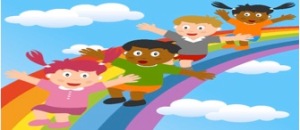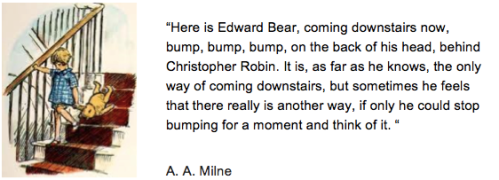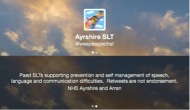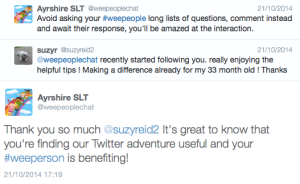Communication is everyone’s business
In our world kids really do say the funniest things and sometimes in the funniest ways but our real passion comes from the kids who are struggling to say much at all.  Our desire to give all children a voice and to improve the lives and outcomes for children here in Ayrshire is our driving force.
Our desire to give all children a voice and to improve the lives and outcomes for children here in Ayrshire is our driving force.
Working with children, their families and all those who surround our children brings huge rewards.
The fabulous auntie
Nothing gives us greater pleasure than those (rarer for both of us these days) occasions when we are lying on the floor engaging with that ‘difficult to reach’ child, the pleasure of knowing you’re making a difference and the privilege of stepping into their world can never be underestimated.
For many anxious families the reassurance that we’re here to help them on their journey and to support them can make a real difference. There is, however, a danger that we can be a little like the fabulous ‘auntie’ who spoils their niece or nephew, bringing enthusiasm, fun and a little bit of nonsense but then heading home before bedtime to leave the weary parent to calm their children down and somehow get them off to bed. In the same way the ‘professional’ waltzes in with a bag of exciting toys, a range of ideas and years of experience which allows them to engage the little person in question, in ways their parents never knew possible but then we walk out the door saying we’ll be back next week. Which brings us to some of our challenges…..
It’s a well known phrase in television ‘never work with children or animals’. Thankfully animals don’t often feature in our work (we say ‘often’ as for those that have spent any time visiting homes of service users will appreciate, facing a tankful of piranha, a parrot on the loose, or even just a cat toying with a live mouse isn’t easy!) but children bring their own unique challenges.
Blackpool rock
Early on in her career, one of our lovely colleagues was working in an outlying community clinic with a young man, supporting his speech development.  He’d been on holiday to Blackpool and was desperate to share his news with her. He’d even brought her a present.
He’d been on holiday to Blackpool and was desperate to share his news with her. He’d even brought her a present.
‘How lovely’, you think? He then produced a well ‘sooked’ piece of Blackpool rock from the lining of his trouser pocket, complete with fluff and insisted she eat it there and then!
No amount of polite excuses would do and rather than hurt the young man’s feelings, she did exactly that.
Working in partnership
Paediatric Speech and Language Therapy (SLT) services have always been built around tradition direct intervention models which allowed us to support children who are identified as having speech, language and communication needs (SLCN). Over recent years the impact of delayed speech, language and communication skills within the general population has become more and more apparent and the need to work in partnership to improve the outcomes for all of our children has become a significant feature in early years.
 In 2012 The Early Years Collaborative was established by the Scottish Government and thankfully we managed to work our way into the ‘Away’ team from Ayrshire and join 800 colleagues from across Scotland to focus on ‘making Scotland the best place to grow up’. Something special was certainly happening and now we could see how we could reshape our service to make a real difference to the children of Ayrshire.
In 2012 The Early Years Collaborative was established by the Scottish Government and thankfully we managed to work our way into the ‘Away’ team from Ayrshire and join 800 colleagues from across Scotland to focus on ‘making Scotland the best place to grow up’. Something special was certainly happening and now we could see how we could reshape our service to make a real difference to the children of Ayrshire.
http://www.scotland.gov.uk/Topics/People/Young-People/early-years/early-years-collaborative
What’s wrong with October?
 Change can be a challenge for some and is certainly a consideration for most.
Change can be a challenge for some and is certainly a consideration for most.
The attitude to change of one of our young people, with a diagnosis of Autistic Spectrum Condition, really made us smile. He was in the classroom at the end of October and his class teacher was carefully explaining that when the children returned to school on Monday it would no longer be October but a new month would have started and that it would be called November.
This young man was heard to say “November, November? What the hell was wrong with October?”
Shifting the balance
We know that there were lots of real positives in our previous models of service delivery but the need to shift the balance to include a range of service delivery at universal (prevention), targeted (for some children who may never have been ‘referred’ to us) and at specialist (where young people and their families need the specialist skills of an SLT) levels means something different needs to happen.
We need to ensure that language and communication skills are fundamental and are everyone’s business. We all have our part to play, child, parent, early years worker, teacher, social worker, consultant, psychologist… We need to change the culture around our children and empower parents and families to manage the needs of their children and promote independence in their children.
Utilising The Model for Improvement and making changes one child, one familiy and one step at a time is helping us to see the light at the end of the tunnel. We’ve got some fairly substancial stretch aims for our service which will be supported by the pillars of practice we agreed with support from our professional body, the Royal College of Speech and Language Therapists (RCSLT). Sharing our successes is vital to maintaining the confidence we have in our direction of travel.
Make my day
 We embarked on joining the world of social media in late July, establishing our Twitter presence for families, carers and early years worker to follow with the aim of sharing information,daily tips and signposting to resources and events to support SLC development in all children, even those not yet born.
We embarked on joining the world of social media in late July, establishing our Twitter presence for families, carers and early years worker to follow with the aim of sharing information,daily tips and signposting to resources and events to support SLC development in all children, even those not yet born. 
One mum recently sent us the following tweet,
“@weepeoplechat recently started following you. really enjoying the helpful tips ! Making a difference already for my 33 month old! Thanks”
To say it made our day couldn’t be more true.
Being more accessible to families will in turn reduce requests for assistance from our department. Often families are looking for reassurance or advice around the best way for them to support their child, challenging the assumptions we’ve held in the past around parent’s expectations of services and demonstrating that many families are able and willing to actively engage in the management of their child’s needs.
I wish I’d met you months ago
I recently met a mum during a multi-agency clinic, she was concerned about her child’s speech and language development and was awaiting an initial assessment with our department.  Although I agreed that her child was likely to need support from an SLT, I was able to give her some advice and strategies to try whilst she was waiting for the assessment appointment. Her response? “I wish I’d met you months ago, that’s really helped” Simple but effective.
Although I agreed that her child was likely to need support from an SLT, I was able to give her some advice and strategies to try whilst she was waiting for the assessment appointment. Her response? “I wish I’d met you months ago, that’s really helped” Simple but effective.
Increasing our capacity to engage with our local communities on a day to day basis will allow more parents, care givers and professionals to seek support when they need it most. Releasing that capacity is our challenge and often where our doubts creep in.
Ayrshire – the best place to grow up
There are challenges and opportunities all around us and we believe we can fly. We all have our part to play, join us on our journey and help us to make Ayrshire the best place to grow up.
This week’s blog was written by @lousteel13 (Louise Steel) , SLT Service Lead – Community Paediatrics and @elspethahp (Elspeth Mair), SLT Service Lead – Children and Adults with Additional Support Needs in NHS Ayrshire & Arran.

Are Makaton lessons available in Ayrshire?
By: Susan h on November 14, 2014
at 17:36